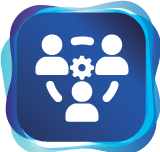 |
CCST8001 Scientific and Technological Literacy
|
[This Common Core course is delivered in an Open Platform format, a flexible student- or staff-initiated learning structure for an advanced level course with Common Core prerequisite requirements. The course is small research- and project-based seminar in which students and staff co-create the course. It is open to students from ALL Faculties.
Students who wish to take this course need to have fulfilled the following requirements:
- having successfully completed at least three CC courses on campus and have accumulated at least twenty-four CC credits;
- having already passed one course in the Scientific and Technological Literacy AoI and cannot have completed two; and
- possess a strong record attainment in the CC with grades B+ (3.3) or above.
Students who are interested in taking this course and have fulfilled the above prerequisite requirements should apply to enroll on the course by email to commoncore@hku.hk together with a copy of i) academic transcript (student copy); and ii) letter from your home Faculty granting Advanced Standing / Credit Transfer for CC credits (if applicable). Application period: August 7 – 13, 2019. The selection of students will be performed by the course co-ordinator. Applications submitted outside of the application period will NOT be considered.
Please note that in the event that a student has failed a CC Open Platform course, s/he will not be allowed to take another one.]
Course Description
In this course, 6-12 students will come together in a collaborative transdisciplinary research project over the semester which crosses disciplines and expertise working towards a common real-world biomedical challenge goal. The team project will be student-led but closely mentored by teaching faculty through discussions and advisory meetings both individually and in groups every week. Students would act in particular roles in the team – some engaged in direct research, others in knowledge exchange with communities, some in the sociology/anthropology of science, some investigating the course as an example of a Social Enterprise, others in service work or in building international collaborations; but, all would be working towards a common goal with a biomedical angle aligned with the Scientific & Technological Literacy AoI.
A critical aspect for project goals would be a potential for impact. Examples could include development of a new diagnostic approach, performing public health research then advocating for a change in government health policy, developing the tools for a successful start-up or social enterprise, or studying and applying an emerging technology such as nanotechnology or blockchain for healthcare applications. Passion, interest, and team spirit are all critical factors as students decide on their individualized project with a community need. Students not only hone research, communication and project management skills, but develop to be responsible global citizens with a sense of ownership to the needs of the world around them.

Course Learning Outcomes
On completing the course, students will be able to:
- Identify the key roles played by biomedical science in addressing wider societal concerns by engaging with the community and translate this into research questions and projects.
- Acquire and apply research skills in design of experiments; literature search and retrieval; use of technology for simulation and computation; data acquisition and analysis; and troubleshooting.
- Conduct, collaborate and create an inquiry-based solution to real-world challenges from evaluation of scientific and literary evidence alongside integration of diverse perspectives from different disciplines.
- Communicate research output effectively, in both written and oral forms, to the stakeholders of the research (i.e. potential users of their technologies, general public audience).
- Articulate an understanding of the challenges and rewards of specifically transdisciplinary research teams.
Offer Semester and Day of Teaching
First semester
Study Load
| Activities | Number of hours |
| Lectures | 0 |
| Tutorials | 36 |
| Laboratory / Fieldwork / Community research | 70 |
| Reading / Self-study | 10 |
| Assessment: Written assignments / Report writing | 10 |
| Assessment: Group tasks | 10 |
| Total: | 136 |
Assessment: 100% coursework
| Assessment Tasks | Weighting |
| Formative individual progress report | 0 |
| Group project portfolio | 30 |
| Research output | 30 |
| Individual final report | 40 |
Required Reading
Students will be required to engage with all the research ethics materials available from the Faculty of Medicine (and others, as necessary):
Workshop Series
- What Constitutes Research Misconduct, Falsification, Fabrication and Plagiarism? (2017, Oct 17) [Internal]
- Management, Ownership and the Legal Aspects of Your Research Data (2017, Nov 7) [Internal]
- Animal Research Ethics: Laboratory Animal Welfare Compliance (2018, Jan 9) [Internal]
- Publication, Contribution and Justification of Authorship (2018, Feb 7) [Internal]
- Clinical Research Ethics: The Rights of the Human Research Subjects (2018, Mar 9) [Internal]
- Conflict of Interest: Declare and Beware! (2018, May 8) [Internal]
Further individualized reading to groups depending on the research topic will be provided during mentoring meetings
Course Co-ordinator and Teacher(s)
| Course Co-ordinator | Contact |
| Professor J.A. Tanner School of Biomedical Sciences, LKS Faculty of Medicine |
Tel: 3917 9472 Email: jatanner@hku.hk |
| Teacher(s) | Contact |
| Professor J.A. Tanner School of Biomedical Sciences, LKS Faculty of Medicine |
Tel: 3917 9472 Email: jatanner@hku.hk |

